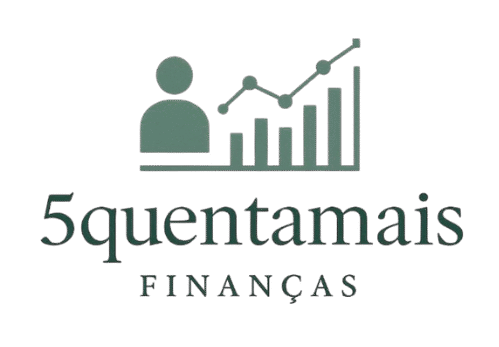Financial Outlook for 2025: Strategies and Trends for Adults Over 50
As we step into 2025, the financial landscape continues to evolve, bringing both challenges and opportunities for individuals aged 50 and above. This demographic often focuses on preserving wealth, generating stable income, and planning for retirement. Understanding key financial trends and adopting tailored strategies can empower older adults to navigate the complexities of this new year with confidence.
1. Global Economic Trends Shaping 2025
The global economy is transitioning through a period of moderate recovery. Key factors influencing the financial outlook include:
Inflation Moderation: After several years of high inflation, central banks in developed economies, such as the U.S. Federal Reserve and the European Central Bank, are anticipated to ease interest rates gradually. This shift aims to stimulate economic growth while keeping inflation in check.
Slower Growth in Developed Markets: Economies in North America and Europe are experiencing modest growth due to ongoing geopolitical uncertainties and slow productivity gains.
Emerging Market Opportunities: Countries like India and parts of Latin America are showing robust growth potential, driven by strong domestic consumption and investment.
2. Key Financial Concerns for Adults Over 50
For individuals above 50, financial stability often revolves around maintaining income streams, managing healthcare expenses, and safeguarding retirement savings. Here are some challenges to watch:
Rising Healthcare Costs: Aging populations worldwide face higher medical expenses, which can strain retirement budgets.
Longevity Risk: Increased life expectancy means retirees need to ensure their savings last longer.
Market Volatility: Uncertainty in global markets can impact investment portfolios, particularly for those nearing retirement.
3. Investment Strategies for 2025
To mitigate risks and optimize returns, individuals over 50 should consider the following investment strategies:
Diversified Portfolios: Allocate assets across different sectors and geographies to reduce risk. For example, incorporating dividend-paying stocks, government bonds, and alternative assets like real estate can create a balanced portfolio.
Inflation-Protected Investments: Instruments like Treasury Inflation-Protected Securities (TIPS) or inflation-linked bonds in other countries can help preserve purchasing power amid rising prices.
Focus on Stable Sectors: Healthcare, utilities, and consumer staples often perform well during economic slowdowns, providing steady returns.
Pro Tip: Use low-cost exchange-traded funds (ETFs) to gain exposure to various asset classes without high management fees.
4. Retirement Planning in 2025
For those nearing or in retirement, careful planning is essential to ensure a comfortable lifestyle.
Reassess Withdrawal Strategies: The traditional 4% rule for annual withdrawals may need adjustment depending on market conditions and personal circumstances.
Maximize Social Security or Pension Benefits: Delaying claims can significantly increase lifetime payouts. For example, in the U.S., waiting until age 70 to claim Social Security benefits results in higher monthly income compared to claiming at 62.
Plan for Healthcare Costs: Consider long-term care insurance or dedicated savings accounts to cover unexpected medical expenses.
Example: In countries with national healthcare systems, explore supplemental private insurance to cover additional costs not included in public plans.
5. Housing and Lifestyle Adjustments
Housing remains a significant financial consideration for older adults. Downsizing or relocating to areas with lower costs of living can free up capital and reduce monthly expenses.
Real Estate Investments: Investing in income-generating properties, such as rental units or Real Estate Investment Trusts (REITs), offers an alternative income stream.
Aging in Place: For those who prefer to stay in their current homes, retrofitting for accessibility can enhance comfort and safety.
6. Opportunities in Technology and Digital Finance
The rise of digital tools and platforms offers new opportunities for financial management and income generation:
Robo-Advisors: Automated investment platforms provide affordable and accessible portfolio management tailored to individual goals.
Digital Banking: Online banks often offer higher interest rates on savings accounts and lower fees compared to traditional banks.
Side Hustles and Gig Economy: Leveraging technology to participate in remote work or freelance opportunities can supplement retirement income.
7. Tax Optimization Strategies
Effective tax planning can significantly enhance disposable income.
Tax-Advantaged Accounts: Maximize contributions to retirement accounts, such as IRAs, 401(k)s, or their equivalents in other countries.
Charitable Giving: Donating to charities can reduce taxable income while supporting causes you care about.
Estate Planning: Setting up trusts or gifting assets can minimize estate taxes and ensure smooth wealth transfer to heirs.
8. Financial Literacy and Resources
Staying informed is crucial for making sound financial decisions. Here are some resources to explore:
Financial Advisors: Certified professionals can help tailor strategies to your specific needs and goals.
Online Education Platforms: Websites like Coursera and Khan Academy offer free courses on personal finance.
Community Programs: Many local organizations provide workshops and seminars for older adults on financial planning.
Navigating 2025 with Confidence
For individuals over 50, 2025 presents a mix of challenges and opportunities. By staying proactive, diversifying investments, and leveraging new technologies, older adults can achieve financial security and peace of mind.
Whether you’re planning for retirement, seeking stable income, or exploring new financial avenues, the key is to stay informed and adaptable. Take charge of your financial future today to enjoy a prosperous tomorrow.
For more personalized advice, consult a financial advisor or explore resources tailored to older investors.




